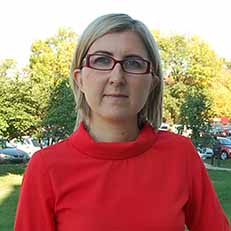Location, population key to airborne concentrations of PFAS in Great Lakes
BLOOMINGTON, Ind. - The Great Lakes hold more than just breathtaking beauty. They cradle a staggering 20 percent of the world's freshwater and 95 percent of America's freshwater. With 10 percent of the U.S. population and as much as 35percent of Canadians calling their basin home, these lakes are the beating heart of North America.
The Great Lakes also host a vibrant ecosystem full of life, from fish to bald eagles. Chemical contaminants pose a significant risk to this ecosystem, with per- and polyfluoroalkyl (PFAS), also known as “forever chemicals,” emerging as the latest threat. Understanding where PFAS enter the ecosystem is critical to combating the threat posed by the substances.
A new study from researchers at the Paul H. O’Neill School of Public and Environmental Affairs and collaborators from Canada published in Environmental Science & Technology shows that PFAS are introduced to the Great Lakes through precipitation and the air. The study was funded through the Great Lakes Restoration Initiative from the U.S. Environmental Protection Agency’s Great Lakes National Program Office.
“When it comes to precipitation, the levels of PFAS are the same across the lakes,” said Dr. Chunjie Xia, a postdoctoral associate who worked on the study. “The levels in precipitation don’t depend on the population; they are similar in Chicago, which is heavily populated, and at Eagle Harbor, Michigan, where there’s maybe 500 people living in a 25-kilometer radius. That tells us the levels are ubiquitous. This is the first time we’ve seen that. We’ve never seen that for other pollutants before.
“On the other hand, the levels in air are really different. The highest were in urban sites, such as Chicago and Cleveland, where there are more people, and the lowest levels were at remote sites where there are few people. That’s similar to what we have observed for other chemicals such as PCBs and pesticides, where the levels are directly related to local population.”
Lake water samples also told a story. Lake Superior, for instance, is the biggest and deepest among the Great Lakes, and showed the lowest level of PFAS. Lake Ontario, which is the last in the Great Lakes chain, the most populated, and the one with the most industrial and urban centers, had the highest levels.
“The biggest result was that atmosphere disposition is a really important pathway for delivering PFAS to the Lakes, particularly for Lake Superior,” said Dr. Marta Venier, an assistant professor in environmental chemistry at the O’Neill School, who led the study.
When we looked at how PFAS get into the lakes and how they are later eliminated from the lakes, we found that PFAS are building up in the northernmost lakes such as Superior, Michigan, and Huron. However, Lake Ontario is getting rid of PFAS faster than it’s accumulating them since its water discharges to the St. Lawrence River and the Atlantic Ocean.
“The results of the study suggest that we need to take a broad approach to control sources that release PFAS into the atmosphere and into bodies of water, such as wastewater treatment plants, stormwater, and any sources, since they eventually all end in the lakes,” Venier said. “We also need to gather more data to determine which of these sources is the major player.”
The study does ease concerns about the level of PFAS in precipitation.
“Although precipitation is one of the pathways for PFAS into the environment,” Venier said, “the levels that we measured are not a concern for people.”


